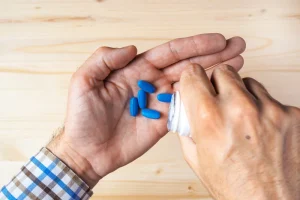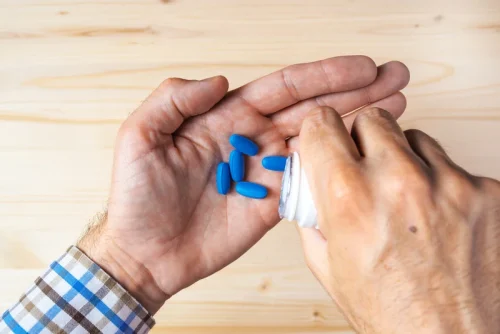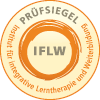According to them, almost 8% of veterans on a military operation suffered from PTSD, while 11% misused alcohol, compared to 5% and 6% of non-veterans, respectively. However, this issue was still seen as a moral failing or lack of willpower rather than as a disease or a response to trauma. Alcohol addiction dates back to ancient times, with historical records from Egypt and Mesopotamia depicting heavy consumption of beer and wine along with the problems caused by it.
- During such an instance, one may unknowingly put themselves in a harmful situation.
- The symptoms of PTSD blackouts can vary widely among individuals, but common experiences include feelings of disorientation, confusion, and a sense of lost time.
- Although individuals may benefit from being part of a clinical trial, participants should be aware that the primary purpose of a clinical trial is to gain new scientific knowledge so that others may be better helped in the future.
- They involve reliving the trauma through flashbacks or nightmares, avoidance of situations that remind one of the trauma, heightened reactivity to stimuli, and even severe anxiety and depression.
Are you covered for insurance treatment? Find out now.
- Second, the use of opioid blockers such as naltrexone may block the effects of alcohol and break the addictive cycle.
- Administering naltrexone as part of the treatment for patients with both PTSD and alcoholism may help break the addictive cycle.
- When she presented for treatment at age 38, she had undergone at least 10 prior treatment attempts for alcohol dependence.
- These recollections might occur through intrusive memories, nightmares, or, in severe cases, flashbacks.
- This allows people that are blacked out to carry on conversations and recall stories from earlier in the evening while they were intoxicated.
For example, some people may feel detached from the experience, as though they are observing things rather than experiencing them. A mental health professional who has experience helping people with PTSD, such as a psychiatrist, Drug rehabilitation psychologist, or clinical social worker, can determine whether symptoms meet the criteria for PTSD. This includes combat veterans and people who have experienced or witnessed a physical or sexual assault, abuse, an accident, a disaster, or other serious events. People who have PTSD may feel stressed or frightened, even when they are not in danger. Symptoms of PTSD typically begin immediately after or within one month of a traumatic event. In younger children, symptoms are often behavioural and can include re-enacting the traumatic event during play or in drawings.
Signs and Symptoms of an Alcohol Blackout
For those currently struggling with PTSD blackouts, it’s crucial to seek professional help and to remember that healing is a journey. With patience, perseverance, and the right support, it is possible to reclaim control over one’s memories and experiences, moving towards a future where the camera of the mind captures life’s moments with clarity and continuity. While blackouts represent one extreme of memory disruption, individuals with PTSD may also experience hypermnesia, or extremely vivid and intrusive memories of traumatic events. This dichotomy highlights the complex ways in which trauma can impact the brain’s memory systems. PTSD blackouts can manifest in various forms, each with its own unique characteristics and implications for the individual experiencing them. One common type is dissociative amnesia, which involves the inability to recall important personal information, often related to traumatic events.
Alcohol Use Problems Can Lead to Trauma and Problems in Relationships

Similarly, women exposed to childhood rape often report turning to alcohol to reduce symptoms of PTSD (Epstein et al. 1998). In addition, investigators found that 40 percent of inpatients receiving treatment for substance abuse also met criteria for PTSD (Dansky et al. 1997). If blackout drinking or binge drinking have become regular occurrences in your life, you may already be addicted to alcohol. This is especially true if you notice your relationships becoming strained or if you start experiencing new problems at work.
- If you know someone who may be experiencing PTSD, the most important thing you can do is to help that person get the right diagnosis and treatment.
- And from there, we can help you with recovery from residential alcohol treatment to ongoing, outpatient support.
- Some medications may help treat specific PTSD symptoms, such as sleep problems and nightmares.
- Last, we did not compare effect size differences between men and women in this study; therefore, we do not have a clear understanding on the exact sex differences in these meditational models.
- People with PTSD often have co-occurring conditions, such as depression, substance use, or one or more anxiety disorders.
Lifestyle Quizzes
It’s crucial to work closely with a mental health professional to determine the most appropriate medication regimen, as individual responses can vary. The symptoms of PTSD blackouts can vary widely among individuals, but common experiences include feelings of disorientation, confusion, and a sense of lost time. Many people report feeling as though they’ve “woken up” in a different place or situation, with no recollection of how they got there. Some may experience physical symptoms such as dizziness, headaches, or a feeling of detachment from their body. Before you can understand how to control PTSD blackouts, you need to understand what’s causing them in the first place.
In the United =https://ecosoberhouse.com/ States, a “standard drink” is defined as any beverage containing 0.6 fl oz or 14 grams of pure alcohol. Many people who have blackouts do so after engaging in a behavior known as high-intensity drinking, which is defined as drinking at levels that are at least twice as high as the binge-drinking thresholds for women and men. People with complex post-traumatic stress disorder (CPTSD) often experience chronic emotional distress. Symptoms include emotional dysregulation, intense shame, and a negative self-concept due to prolonged exposure to trauma.

As a result, she felt much more capable of combating temptations to drink, which she continued to encounter from a variety of triggers not related to PTSD. At the end of treatment, Margaret stated that for ptsd alcohol blackout the first time in her life she felt “ free” and truly able to put her past behind her. Margaret was encouraged to maintain contact with her treatment providers for continued support to help maintain her gains and cope with setbacks. Looking more specifically at facets of emotion dysregulation, PTSD symptoms had an indirect effect on alcohol-related consequences through Impulse Control Difficulties and Difficulties Engaging in Goal-Directed Behavior in the full sample. When we examined men and women separately, Impulse Control Difficulties remained significant only for men.
- For about 8 percent of the population, however, the consequences of experiencing trauma do not abate and may indeed get worse with time (Breslau et al. 1991; Kessler et al. 1995).
- When you’re blackout drunk, your hippocampus—the area of your brain in charge of memories—stops working properly.
- Moreover, 60% of individuals who take CBT recover from substance abuse effectively.
- Often, veterans feel that they have to rely on alcohol to cope with the invisible wounds of war.
- In this guide, we will discuss how to handle PTSD blackouts and regain control of your mind and body.
Emotion Regulation

When she presented for treatment at age 38, she had undergone at least 10 prior treatment attempts for alcohol dependence. She reported drinking up to a case of beer daily, which she said she used primarily to help her sleep and to suppress nightmares of the sexual abuse, and also in response to the trauma reminders she frequently experienced in daily life. When abstinent from alcohol, Margaret reported extremely vivid and disturbing nightmares, profound agitation and jumpiness, and acute reactivity to a variety of environmental cues that reminded her of her traumatic experiences. Many people feel extreme fear during or after witnessing or experiencing potentially traumatic events, such as war, accidents, natural disasters or sexual violence. Most people exposed to such events will experience distress but will recover naturally with time. Some people continue to experience a range of mental health conditions that can persist for months or even years, including PTSD, depressive disorders, anxiety disorders and substance use disorders.

